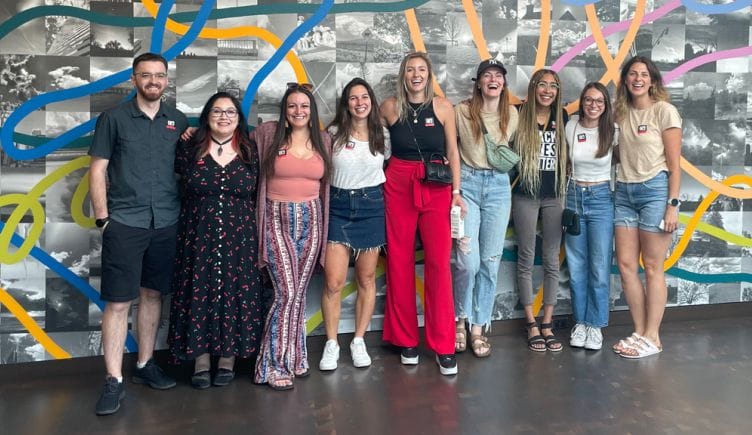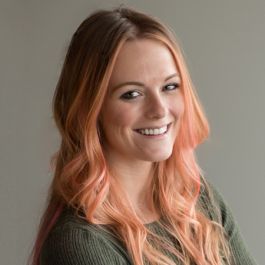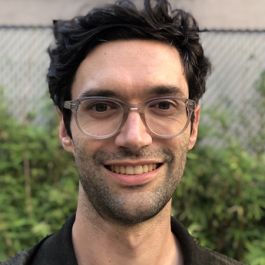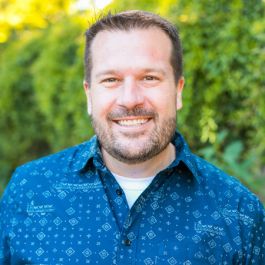Curiosity is a powerful quality.
At Udemy, a leading global learning company, curiosity is not only present in the company’s mission to improve lives through learning, but it’s also a core pillar that feeds into the team’s collective learning journey.
“I still joke that I don’t know what I want to be when I grow up,” said Customer Success Manager Nicole Olshan, based in Udemy’s Denver office, who originally joined the company in a sales role. It was actually an initiative at Udemy called Career Navigator — a program that prepares employees for two annual career development-focused conversations with their managers — that led Olshan in the right direction.
With great intention and focus, Udemy’s learning and development team assembles a slate of activities, programs, workshops and paths for the team to explore. “Our ‘always learning’ value falls short unless people do something with it — whether it’s discussion, feedback or practice,” said Senior Director of Learning and Development Mark McDonald, who is based in Udemy’s San Francisco office.
Recognizing that learning opportunities need to be adaptable to both the learner and their ongoing journey, Olshan and McDonald are advocates for resetting the boundaries of what professional growth traditionally looks like. After all, learning and development is not a one-size-fits-all endeavor.
That’s where UDays come in.
Once a month, team members are expected to disconnect from meetings, calls and Slack to dedicate time to their own personal and professional development. What the day looks like is entirely up to each individual. Everything from wellness and rest to museum visits and back-burner projects are fair game, but a common thread gets the team’s creative minds ticking: getting outside.
While many make time to reset outside away from the computer, Learning Program Manager Joshua Ehrenreich, who is based in San Francisco, joined a group of his colleagues for an intentionally learning-focused outing this past June. “In partnership with Out@U, our LGBTQ-identified employee resource group, we casually did a rainbow walk in San Francisco where there are bronze placards of community leaders,” he explained, adding that it was well-timed given that it was at the start of Pride Month. “It felt very holistically learning-integrated. I returned to work after moving and getting outside and came back feeling much more inspired.”
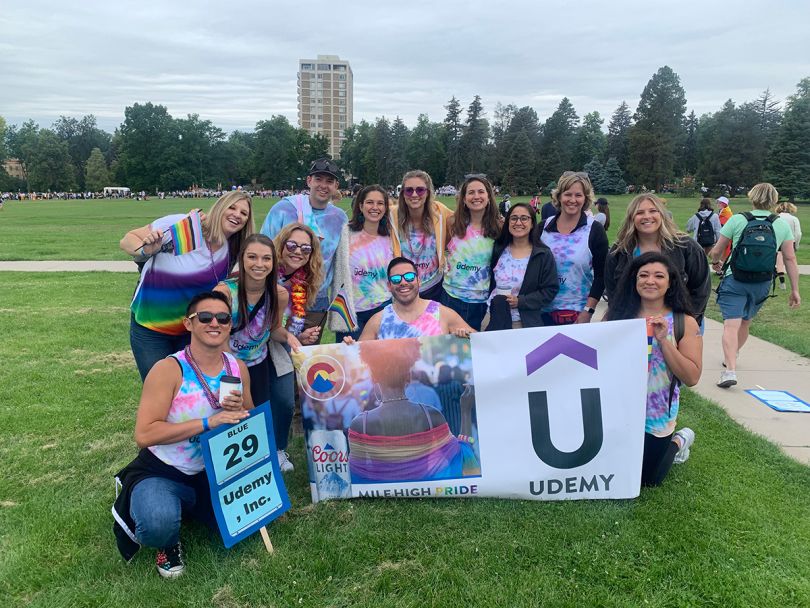
Ehrenreich has been thinking of how to further build community around learning beyond UDays. “Something not specific to UDays that we’re implementing are ‘learning walks,’ which combine a guided inspiration walk with social interaction and photography as a way to get out into the world with your Udemates in a learning context.”
Where the Udemy team goes from here is anyone’s guess, and that’s part of the thrill. “Who knows, I might be knocking on Mark’s door to join the learning and development team soon,” Olshan said, laughing. One thing is certain, though: With curiosity this strong, they will always be learning.
How do Udemates never stop learning?
- UDays
- Career Navigator
- Learning stipend
- MentorU program
- DEAL — drop everything and learn — hour
- Learning walks
- Guest Voices
How does the value of “always learning” express itself within your team?
McDonald: When I describe our culture, I say it is “earnestly authentic.” People can bring their true selves to work, and most — if not all — Udemates are big learners. They likely have chosen to be here because of our mission to impact the world from a learning perspective, and they naturally have the desire to learn, grow, develop and improve lives — for themselves to others along the way. We’re naturally curious, and we really care about each other.
Ehrenreich: We’ve been doing work on the core behaviors associated with our values, and the first behavior under “earnestly authentic” is: “We ask questions to understand the uniqueness of each other and the world around us.” Questions are an aspect of maintaining that authenticity; they’re both how I learn more and learn more about who we work with. We’re a very collaborative and people-oriented culture. Within my day-to-day, there’s a lot of encouragement to both go to the data and follow my professional instinct. Our combined thirst to learn and develop through experience really facilitates our culture.
Olshan: We actually added “courageously experimental” as a value too. In my previous company, we had this saying, “Fail fast and pivot,” but there wasn’t a lot of psychological safety around that. Here at Udemy, there is liberty in trying new things. There is no fear of failure because failure is simply a lesson learned, and the data we get from failure often can impact the direction we need to go anyway. There’s also a sense of camaraderie in that everybody is jointly on a mission to create awesome results while still enjoying every piece of the journey, regardless of triumphs or tribulations.
How do the team’s learning behaviors factor into the internal programs you build?
McDonald: The challenge of working in learning and development is that you need to figure out the balance between making your customers happy and driving the business. Often, those are aligned, but sometimes they can be at odds. We need to be clear about what we’re trying to accomplish in building learning solutions. What is the end goal? Where do we see the company going? What are the skills and behaviors needed for us to be successful? What gaps exist? This year, we actually launched a brand new program called Udemy Leader, designed to meet the needs of where we see gaps in leadership. Looking back, this was one of my big learning journey moments, and it connects to what we do here in L&D.
What other questions are you asking to shape future learning initiatives?
Ehrenreich: “Always learning” means a lot to different people. We have to ask, “What are the core behaviors that bring Udemy’s value to life and specify what it means?” The follow-up question that Mark is very much partnering with me on is, “How do we ensure those behaviors are integrated into the multitude of talent processes we have?” We’re bringing on people who are continually asking questions of themselves and the world around them.
McDonald: The most powerful question I think anyone can ask is, “Why?” Everyone says the “five whys” is a great way to get down to the root cause, and asking several times to be clear unlocks all the things needed to make a really great learning solution. The toughest part about what we do in L&D is understanding how to prioritize. There’s a lot going on, and we can’t necessarily do everything. Understanding how important something is and how much energy and effort you can put into it is also key to building a great solution.
“There is no fear of failure, because failure is simply a lesson learned.”
Tell us about UDays. What do they look like for everyone across the company?
Olshan: UDays are for you to do what you need with meeting-free time once a month. Often, we find ways to incorporate monthly themes. For example, if it’s Mental Health Awareness Month, we would put together an activity that allows people to spend their day learning about mental health. May was also Asian American Pacific Islander Month. Many of us in Denver and San Francisco spent the day checking out exhibits at our local museums to learn more about AAPI heritage and culture.
The other thing UDays are meant for is deep thought and work — an opportunity to dig into projects you’ve put on the back burner because the daily flow of your work day or week doesn’t permit you to dive in and get those creative juices flowing. UDays allow us to actually spend time resting and relaxing — whether by reading a book, going to a park, or spending time by ourselves or with peers. It’s really what we want to make of it.
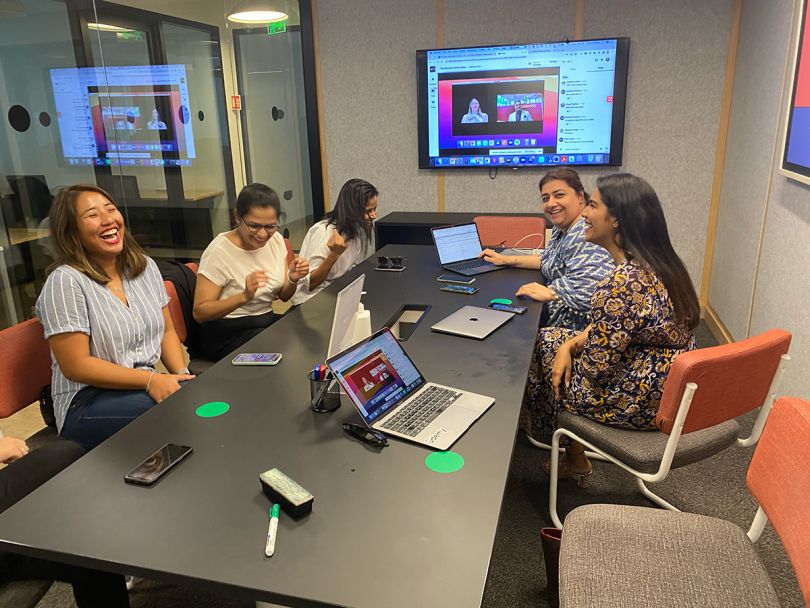
What other compelling L&D programs or initiatives does Udemy offer?
Olshan: I love MentorU. I was in the first cohort more than a year and a half ago, and that was really helpful for navigating the move from sales to customer success. I still chat with my mentor on a bi-monthly basis, and I’m so grateful that Udemy creates and facilitates that structure. Our Career Navigator program, which provides resources like live workshops and a course hosted on Udemy Business, was the impetus for me moving into customer success. I absolutely adore the recommended learning from it. I revisit the peaks and valleys exercise from that course, as well as the idea that “feedback is fuel,” which is helpful during performance reviews.
Ehrenreich: Something I really love and am the program manager of is our Guest Voices series, where we bring in external speakers. We had the director of meditation from Headspace come in during last year’s National Stress Awareness Month. We had Lex Gillette, a Paralympics silver medalist, come in during Black History Month. Right as our return to office was exiting beta, we had a consultant come share on virtual and asynchronous work. I’m inspired by the opportunity to bring in external voices to speak on relevant topics, especially when there’s an extra connection — whether it’s from an inclusivity, heritage month or business standpoint.
“How do I be a contributing member of society? How do I show up as the best version of myself? One way to do it is literally being at Udemy.”
Why is it important to have such well-rounded learning and development opportunities internally?
Ehrenreich: It’s important to decentralize learning and development. Professional development is Udemy’s manifest — it’s what we’re helping organizations do. As a company, we attract people who don’t just want to be given that professional development but who also can identify where they want to grow and ensure that they’re taking steps toward it. We’re providing a ton of opportunities, but the people who are most excited to come here — and the people we are most excited to work with — are those who don’t see professional development as a task to do but rather as a thing to look forward to. It’s part of their journey.
Olshan: Udemy allows you the flexibility to jump into different side projects, have cross-functional collaboration, show up “earnestly authentic” as your whole self, and discuss where you want to go and what you want to do. We’ve seen people transition from customer success to marketing, facilities to support, and even email marketing to back-end engineering. There’s no one right way to build your career here. Your career path is what you make of it, and you’re given the resources to go in the direction that feels right to you. There are a lot of opportunities to dismantle what our traditional education system has done for us. Beyond constantly succeeding and showing up and getting good grades, you wonder, “How do I be a contributing member of society? How do I show up as the best version of myself?” One way to do it is literally being at Udemy.

